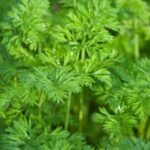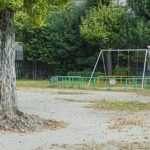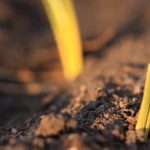Container vegetable gardening in Seattle is a popular and practical way to grow your own produce, even if you don’t have a traditional garden space. Whether you live in an apartment or simply want to make the most of your outdoor area, container gardening allows you to cultivate a variety of vegetables in pots, boxes, or other containers.
In this article, we will explore the ins and outs of container vegetable gardening in Seattle, including tips for success, best practices for the local climate, and real-life success stories from fellow urban gardeners.
Seattle’s climate offers both benefits and challenges for container vegetable gardening. With its mild temperatures and abundant rainfall, it provides an ideal environment for growing a wide array of vegetables. However, the city’s marine climate also brings cooler summer temperatures and high humidity, which can pose challenges for certain plants. Despite these considerations, with the right knowledge and strategies, it is entirely possible to create a thriving container vegetable garden in Seattle.
By choosing suitable containers that can withstand Seattle’s weather conditions – including rain, wind, and temperature fluctuations – gardeners can set themselves up for success from the start. Additionally, selecting the right vegetables that are well-suited to the local climate is crucial for ensuring a bountiful harvest. With proper soil preparation and maintenance techniques tailored to Seattle’s unique conditions, individuals can enjoy fresh homegrown produce throughout the growing season.
Benefits of Container Vegetable Gardening in Seattle’s Climate
Container vegetable gardening in Seattle’s climate offers numerous benefits to gardeners, whether they have limited space or simply want to enjoy the convenience of growing their own fresh produce. One of the primary advantages of container gardening in Seattle is the ability to control the growing environment for your vegetables. This is especially important in a region with variable weather patterns and temperature fluctuations throughout the year.
Adaptability to Limited Space
For those living in urban areas or apartments, container vegetable gardening in Seattle provides an opportunity to grow plants without a traditional garden plot. By utilizing containers, gardeners can make use of small balconies, patios, or even windowsills to cultivate their favorite vegetables. This adaptability makes it possible for city dwellers to experience the joy of homegrown produce without requiring a large outdoor space.
Protection Against Inconsistent Weather
Seattle’s climate can be erratic, with mild and wet winters followed by warm, dry summers. Container gardening allows for flexibility in moving plants indoors during extreme weather conditions such as heavy rain or heatwaves.
This protective measure helps safeguard the health and growth of the vegetables, ensuring that they have a better chance of thriving despite the unpredictable climate. The portability of containers also makes it easier to provide the optimal amount of sunlight and shelter from strong winds when necessary.
Year-Round Harvesting Opportunities
In Seattle’s temperate climate, container vegetable gardening enables gardeners to extend their growing season beyond traditional boundaries. With proper care and attention, it is possible to cultivate a variety of vegetables throughout the year, including cool-weather crops like kale and lettuce in the spring and fall, as well as warm-weather favorites such as tomatoes and peppers during the summer months.
This extended harvesting period allows for a continuous supply of fresh produce right at home, regardless of seasonal fluctuations in outdoor conditions.
Choosing the Right Containers for Seattle’s Weather
When it comes to container vegetable gardening in Seattle, choosing the right containers is crucial for the success of your garden. The climate in Seattle can be quite unpredictable, with rainy and overcast days being common. Therefore, it’s important to select containers that can withstand the wet and sometimes chilly weather.
One of the best options for containers in Seattle’s climate is plastic. Plastic containers are durable, lightweight, and weather-resistant, making them ideal for the varying conditions in Seattle. Additionally, they are easy to clean and move around as needed. Terra cotta pots are also a good choice, as they provide excellent drainage and allow air to reach the roots of your vegetables.
Another important factor to consider when choosing containers for vegetable gardening in Seattle is size. Larger containers are better at retaining moisture and have more space for root growth, which is essential for healthy vegetables. Additionally, larger containers are less likely to tip over in strong winds, which can be a concern in Seattle.
In addition to material and size, consider the depth of the containers. Different types of vegetables require varying depths for their roots to grow properly. For example, carrots need deeper containers while lettuce can thrive in shallower ones. By choosing the right containers based on material, size, and depth, you’ll set your container vegetable garden up for success in Seattle’s ever-changing weather.
| Container Material | Advantages |
|---|---|
| Plastic | Durable, lightweight, weather-resistant |
| Terra Cotta | Excellent drainage and allows air to reach roots |
| Size | Larger containers retain moisture better and provide space for root growth. |
Selecting the Perfect Vegetables for Container Gardening in Seattle
When it comes to container vegetable gardening in Seattle, selecting the right vegetables is crucial for a successful and bountiful harvest. The cool, wet climate of Seattle presents both challenges and opportunities for growing vegetables in containers. However, with the right knowledge and choices, you can enjoy a thriving container garden all year round.
Climate-Adapted Vegetables
Seattle’s climate, with its mild winters and moderate summers, allows for a wide variety of vegetables to be grown in containers. However, some vegetables are better adapted to this specific climate than others. Cool-season crops such as lettuce, kale, radishes, and spinach thrive in the mild Seattle weather. These vegetables are perfect for year-round container gardening and can be grown on patios, balconies, or even windowsills.
Dwarf Varieties
For container vegetable gardening in Seattle, it’s important to choose dwarf or compact varieties of vegetables whenever possible. These smaller plants are better suited for the limited space of containers and will still yield a generous harvest. Look for dwarf tomatoes, peppers, eggplants, and bush beans that are specifically bred for small-space gardening.
Herbs
In addition to traditional vegetables, herbs are another great option for container gardening in Seattle. Herbs such as basil, cilantro, parsley, thyme, and mint thrive in containers and can be used to add flavor to your meals throughout the growing season. They also bring beauty and fragrance to your outdoor living space.
By selecting the right vegetables and herbs for your container garden in Seattle’s unique climate, you can enjoy an abundant harvest while making the most of your limited gardening space. With careful planning and attention to plant selection, you’ll be well on your way to creating a thriving urban garden filled with delicious produce.
Essential Soil and Fertilizer Tips for Successful Container Gardening
One of the most important aspects of successful container vegetable gardening in Seattle is using the right soil and fertilizer. Since plants in containers rely solely on the soil provided to them, it’s crucial to choose a high-quality potting mix that will provide proper nutrients and drainage. Look for potting mixes specifically designed for container gardening, as these typically contain a blend of ingredients such as peat moss, vermiculite, and perlite that help with moisture retention and aeration.
In addition to using a good potting mix, fertilizing your container vegetable garden is essential for healthy plant growth. Because the nutrients in container soil can get depleted more quickly than in traditional gardens, regular fertilization is key. Consider using a slow-release granular fertilizer or organic liquid fertilizer to ensure a steady supply of nutrients throughout the growing season.
When it comes to watering your container vegetable garden, be mindful of potential nutrient leaching. Frequent watering can flush out essential nutrients from the soil, so it’s important to replenish them with regular feeding. Keep an eye on your plants for any signs of nutrient deficiencies and adjust your fertilization schedule as needed.
| Aspect | Details |
|---|---|
| Potting Mix | Choose a high-quality potting mix specifically designed for container gardening |
| Fertilizer | Consider using slow-release granular fertilizer or organic liquid fertilizer for regular feeding |
| Watering | Be mindful of potential nutrient leaching from frequent watering and adjust fertilization schedule as needed |
Tips for Watering and Maintaining Container Vegetable Gardens in Seattle
Container vegetable gardening in Seattle requires careful attention to watering and maintenance in order to ensure a successful harvest. With the unique climate of the Pacific Northwest, it’s important to develop a watering routine that takes into account the frequent rainfall as well as the occasional dry spells.
One key tip for watering container vegetable gardens in Seattle is to monitor the moisture levels regularly. Check the soil with your finger or use a moisture meter to ensure that it is getting enough water, especially during drier periods.
In addition to regular watering, maintaining container vegetable gardens in Seattle also involves paying attention to proper nutrition and care. Fertilizing your container plants is essential for their growth and productivity. Consider using organic fertilizers or compost to provide essential nutrients without harmful chemicals. Moreover, maintaining the health of your vegetables also includes pruning, removing dead leaves, and inspecting for any signs of pests or diseases.
Another important aspect of maintaining container vegetable gardens in Seattle is providing adequate support for climbing plants or those with heavy fruits. Install trellises or stakes as needed to prevent plants from becoming overcrowded and promote air circulation. By following these tips for watering and maintenance, you can ensure a thriving container vegetable garden in Seattle despite its unpredictable climate.
Dealing With Pests and Diseases in Container Vegetable Gardening in Seattle
One of the challenges of container vegetable gardening in Seattle is the risk of pests and diseases that can affect your plants. However, there are several strategies you can use to keep your container garden healthy and thriving. One important tip is to regularly inspect your plants for any signs of pests or disease, such as yellowing leaves, holes in the leaves, or unusual spots. By catching these issues early, you can take action before they become a serious problem.
Another key strategy for dealing with pests and diseases in container vegetable gardening in Seattle is to choose resistant plant varieties whenever possible. Certain vegetables, such as tomatoes and cucumbers, have resistant varieties that are less susceptible to common pests and diseases in the Seattle area. Additionally, practicing crop rotation by changing the location of your containers each year can help prevent the build-up of pests and diseases in the soil.
In addition to preventative measures, there are organic pest control methods that can be used for container vegetable gardening in Seattle. For example, introducing beneficial insects like ladybugs or lacewings can help control aphids and other harmful pests without resorting to chemical pesticides.
Additionally, neem oil, insecticidal soap, and garlic spray are natural options for controlling common pests while minimizing harm to beneficial insects and wildlife. By implementing these strategies, you can successfully manage pests and diseases in your container vegetable garden while maintaining a healthy environment for your plants.
Harvesting and Enjoying the Fruits of Your Container Vegetable Gardening Efforts in Seattle
Now that you have put in the hard work of planting and maintaining your container vegetable garden in Seattle, it’s time to reap the rewards of your efforts. Harvesting your homegrown vegetables is one of the most satisfying aspects of container gardening, and there are a few tips to keep in mind to ensure a bountiful harvest.
First, it’s important to know when your vegetables are ready for harvesting. Different vegetables have different signs that indicate they are ready to be picked. For example, tomatoes should be picked when they are fully colored and slightly soft to the touch, while zucchinis are best harvested when they are still small and tender. Make sure to familiarize yourself with the specific harvesting guidelines for each vegetable you have planted.
Once it’s time to harvest, use sharp scissors or garden shears to avoid damaging the plant. Be gentle when handling the vegetables, as they can be easily bruised or damaged. After harvesting your vegetables, make sure to store them properly. Some vegetables, like carrots and radishes, can be stored directly in a refrigerator crisper drawer, while others may require blanching and freezing or canning for long-term storage.
Lastly, don’t forget to enjoy the fruits of your labor. There is nothing quite like eating fresh, homegrown produce straight from your container vegetable garden in Seattle. Whether you use them in a salad, stir-fry, or simply enjoy them on their own, savoring the flavors of your own homegrown vegetables is a truly rewarding experience.
- Know when each vegetable is ready for harvesting
- Use sharp scissors or garden shears for harvesting
- Store harvested vegetables properly
Real-Life Success Stories of Container Vegetable Gardening in Seattle
One of the best ways to learn about container vegetable gardening in Seattle is by hearing from those who have successfully done it themselves. Here are some real-life success stories of individuals who have embraced container vegetable gardening in Seattle and have seen great results:
- Joan, a Seattle resident, started her container vegetable garden on her apartment balcony. She faced the challenge of limited space but was determined to grow her own produce. With the help of raised beds and hanging containers, she was able to grow tomatoes, peppers, and herbs successfully. Despite the city’s unpredictable weather, Joan found that her container garden thrived with proper care and attention.
- Mark and Sarah, a couple living in a townhouse with a small backyard in Seattle, decided to try their hand at container vegetable gardening. They used large tubs and pots to grow cucumbers, beans, and lettuce. The convenience of having fresh vegetables just outside their door made all the effort worth it. Despite the often cool and damp climate of Seattle, they were able to enjoy a plentiful harvest throughout the growing season.
- Rachel, a busy professional living in an urban condo in downtown Seattle, found joy in creating a small container vegetable garden on her rooftop terrace. By carefully selecting compact varieties of vegetables such as cherry tomatoes and dwarf beans, she managed to cultivate a thriving garden even in this urban setting. The satisfaction of harvesting fresh produce for her meals has inspired Rachel to continue her container gardening journey.
These real-life success stories demonstrate that with careful planning, suitable containers, and proper care, anyone can enjoy the benefits of container vegetable gardening in Seattle’s unique climate.
Resources and Supplies for Container Vegetable Gardening in Seattle
In conclusion, container vegetable gardening in Seattle offers a wealth of benefits for both novice and experienced gardeners. The city’s unique climate may present challenges, but with the right containers, vegetables, soil, and maintenance techniques, anyone can enjoy a thriving garden right in their own backyard. By selecting the proper supplies and resources specifically tailored to Seattle’s weather conditions, gardeners can set themselves up for success from the beginning.
When it comes to container vegetable gardening in Seattle, choosing the right supplies is crucial. From durable containers that can withstand the Pacific Northwest’s often unpredictable weather to high-quality soil and fertilizers that help plants thrive, having access to reliable resources is essential. Fortunately, there are numerous local nurseries and gardening supply stores offering everything aspiring container gardeners need to get started.
Furthermore, sharing real-life success stories of container vegetable gardening in Seattle can inspire others to take up this rewarding hobby. By learning from the experiences of fellow Seattleites who have overcome challenges and reaped the rewards of their efforts, individuals interested in starting their own container gardens can gain valuable insights and practical tips.
With the combination of helpful resources and firsthand accounts of triumphs in local container vegetable gardening, it becomes clear that anyone can achieve a flourishing garden in Seattle with dedication and the right tools.
Frequently Asked Questions
What Is the Best Vegetable to Grow in a Container?
The best vegetable to grow in a container is dependent on the size of the container and the amount of sunlight it receives. However, some popular choices for container vegetables include tomatoes, peppers, lettuce, and herbs.
What Vegetables Grow Well in Seattle?
Seattle’s climate is well-suited for growing a variety of vegetables. Some vegetables that grow well in Seattle include kale, chard, broccoli, carrots, beets, radishes, and peas. These cool-weather crops thrive in the mild temperatures and ample rainfall.
What Is the Best Plant Food for Container Vegetables?
When it comes to feeding container vegetables, using a balanced fertilizer with equal parts nitrogen, phosphorus, and potassium is ideal. Organic options such as compost or fish emulsion can also provide essential nutrients without overloading the plants with chemicals. Fertilizing regularly during the growing season will help container vegetables thrive.

If you’re looking to get into vegetable gardening, or are just looking for some tips on how to make your current garden better, then you’ve come to the right place! My name is Ethel and I have been gardening for years. In this blog, I’m going to share with you some of my best tips on how to create a successful vegetable garden.





